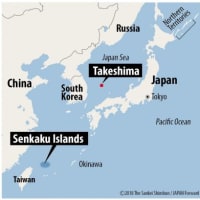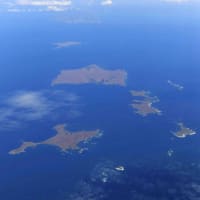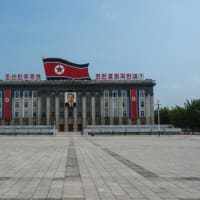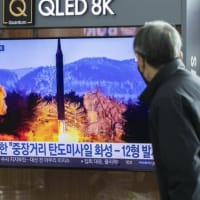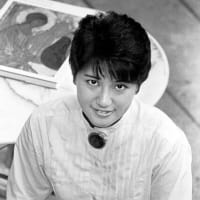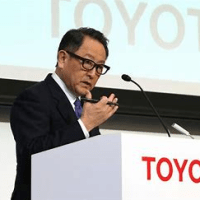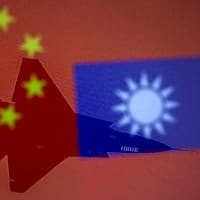
Welcome to Issues in Japan.
I would like to share the article contents of the President Online posted on February 6, written by Mr. Juta Fuji.
Mr. Juta Fuji was born in Tokyo, Japan in 1967. Graduated from National Taiwan University with a bachelor's degree in business administration, and is an advisor for Japan-Taiwan exchange and international management.
The title is: “What Japan's semiconductor industry, once the world's No. 1, should learn from Taiwan's TSMC, now the world's No. 1.”
Mr. Juta Fuji served as an advisor to the Institute for Information Industry, a think tank affiliated with the Ministry of Economic Affairs of the Taiwanese government (equivalent to the Ministry of Economy, Trade and Industry in Japan), for about eight years.
During this time, Mr. Juta Fuji gained a glimpse from the Taiwanese side of how Taiwan's national policy strengthened its economy and built its international position, and how the government, industry, and academia worked together to develop industries and companies.
Based on his experience, Mr. Juta Fuji analyzes the factors that led to the difference between Japan and Taiwan today as follows.
In the 1980s, Japan surpassed even the United States, the mother country of semiconductors, and the "Japan-Brand semiconductors" were leading the world.
In Dynamic RAM (DRAM) memory, the core product at the time, the top five companies in terms of global market share were all Japanese (NEC, Hitachi, Toshiba, Fujitsu, and Mitsubishi Electric).
This was the era of "Japan as Number One" ( by Ezra Vogel), when Japan was recognized by the world as a technological and manufacturing powerhouse.
●Japanese manufacturers focused only on "final consumer goods".
However, Japan was unable to take advantage of its superiority in semiconductor technology in the 1980s, and its status as a "manufacturing powerhouse" has become a thing of the past.
Why has the Japanese semiconductor industry fallen so far behind in such a short period of time?
The first reason is that the companies focused only on the production of "final consumer goods" and neglected semiconductors.
Second, the Japanese companies misjudged the potential of the semiconductor industry, were slow to respond to change, and were stubborn.
Thirdly, we have to point out the impact of the growing belief that "a company belongs to its shareholders and that shareholders should be emphasized" since the collapse of the bubble economy.
●This was the retribution for pursuing only short-term profits.
From that time on, Japanese companies that would stop at nothing to win began to commit more and more brutal acts.
The manufacturing of home appliances and electronic products in Japan is gradually becoming less and less customer-oriented.
We began to see cases where excessive functions were added to raise prices, or where quality was lowered in order to forcibly reduce costs.
●TSMC was one of Taiwan's national policy companies.
Taiwan, on the other hand, predicted the emergence of the semiconductor industry some 50 years ago in the 1970s, and began to study the electronics industry as a national project.
In 1973, the Industrial Technology Research Institute (ITRI) was established as a think tank for this purpose.
In 1976, a technology transfer agreement was signed with RCA of the U.S.
Based on this agreement, a 3-inch (75mm) wafer plant was built within ITRI in 1977, and succeeded in manufacturing semiconductors.
This plant was spun off from ITRI.
Then, in May 1980, it became independent as a company, known as UMC.
UMC is now the third largest semiconductor manufacturer in the world.
●The government has been steadily recruiting Chinese engineers in the United States.
In the meantime, the Taiwanese government continued to promote various national projects, including the development of the Science Park, employment policies, the elimination of regulations and the establishment of laws, the development of an investment environment, the development of housing for engineers, and the development of an educational environment for engineers' children.
In the 1980s, it is well known that many large villas were built around the Science Park to provide housing for "returnees".
Taiwan's government officials had been traveling to the U.S. in droves to headhunt talented Chinese nationals and invite them to Taiwan.
●Why can' t Japan do what Taiwan can?
In April 2020, Mr. Fuji wrote an article for President magazine's online site titled "The Fundamental Reason Why Taiwan's Covid-19 Measures Are Bombastic: There Are No Amateurs in the Cabinet."
In Taiwan, not only ministers, but also bureaucrats, researchers, and managers all do their jobs as professionals and work collectively to support the nation's economy as it continues to develop and grow.
Economic power is national power and national defense power.
Taiwan knows that strengthening its economic power is the only way for it to protect itself from various threats and crises and to survive in a weak position in the international community.
In 1986, when Taiwan was still under martial law, Mr. Fuji, who came to study in Taiwan while it was still developing, often wondered why Taiwan could not do what Japan could.
However, in recent years, Mr. Fuji has increasingly felt "why can't Japan do what Taiwan can do?", whether it is in economic policies such as semiconductors, vaccine development, or dealing with the Covid-19 pandemic.
Taiwan is an island nation, a liberal democracy, a country governed by the rule of law, and has a deep historical relationship with Japan.
"I can not help but hope that Japan and Taiwan will build a better relationship where they can share each other's strengths and weaknesses, good and bad, learn from each other, grow and help each other."
Mr. Fuji concluded his article with these words.
For detailed information please visit my video:
https://youtu.be/EwlPEyNGyZ0
That’s all for now.
Thank you for your visit and interest.











